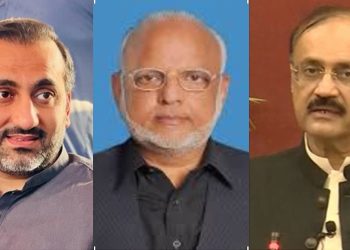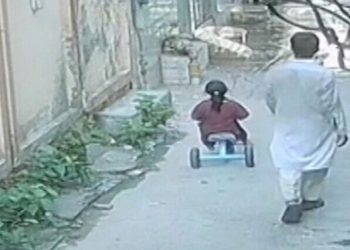ISLAMABAD: The Supreme Court has turned down a bail plea of a man arrested on the charge of sharing child pornography video on social media, saying the suspects in such cases do not deserve bail.
The suspect Umer Khan approached the apex court seeking post-arrest bail. A two-judge bench of the top court ruled that although the offence with which the petitioner has been charged does not fall within the prohibitory clause of Section 497 Cr.P.C. (non-bailable offences) but “the nature of the accusation, its impact on the society and the material collected so far” merit no concession.
The Supreme Court ordered the trial court must announce its verdict in the case soon. The apex court noted that child pornography is a major cause of child sexual abuse and is also one of the leading causes of devastation in society. The bench also called it a grave threat to the future and morality of children in the country.
The court noted that it was the management of Facebook that contacted the Federal Investigating Agency (FIA) and provided information against the petitioner, upon which the agency launched an investigation against him. The apex court said the mobile phone of the petitioner was seized and sent to a forensic lab that extracted “child pornographic videos and images” from the device.
“We have noticed that one of the most alarming social evil prevailing in the society is child pornography. It has created havoc in society as it contains a great threat to morality and the future of children,” read a three-page verdict by Justice Mazahar Ali Akbar Naqvi.
“One of the reason for the rise of child abuse/rape cases is squarely because of child pornographic content. The concerns regarding child sexual abuse and exploitation have been prevailing in the society in the past also.”
In 2016, Pakistan criminalised child pornography making the offence punishable with seven years in prison and a fine of Rs0.7 million. The new amendment, titled Criminal Law (Amendment) Bill 2015, also criminalised child trafficking within the country.
The initiative came after the country was rocked by a major paedophilia scandal in August 2015, when it was revealed that hundreds of pornographic videos of children from a village in Punjab province had circulated online.





































